EARLY DRAFT OF CAPOTE’S SCRIPT FOR “THE GREAT GATSBY.” Autograph Manuscript Signed (“T. Capote” and “Truman Capote”), in pencil and pen, 133 pp recto and verso, 4to, [Los Angeles, 1971], being a partial draft of the screenplay adaptation of The Great Gatsby, housed in spiral notebook with yellow upper cover, pages lightly toned, some wear and loss to lower spine at wire, thumbing throughout. Truman Capote, author of the 20th century classics Breakfast at Tiffany’s and In Cold Blood, was hired in 1971 by Paramount to write the third screen adaptation of F. Scott Fitzgerald’s masterpiece, The Great Gatsby. Capote took the assignment seriously, and labored over the script from that September until January of 1972. This manuscript is a partial draft of that screenplay, comprising the first act of the film from the introduction of Nick Carraway, Tom Buchanan, Daisy, and Jordan at their first luncheon, through Tom and Nick’s train trip to the city, to the introduction of Myrtle and the raucous party at her New York apartment. Capote found the adaptation a challenge, but the draft here is both lyrical and dramatic. From page 1: “Interior. A train and its windows. Grimy windows with grey and shadowy urban-nothingness skidding across their surface: streets and washlines that gradually dissolve into scraps of countryside. As the train moves-- / Nick Carraway (Over Voice): Well, here I am again. On the 5:15 from Penn station to West Egg, Long Island. Not that I’ve made the trip so often. Just this past month of May, 1922. Since I came East after four years at Yale and two years overseas putting down the Huns and a year at home with my Midwestern family, all good and fine people, cousins, aunts, uncles, trying to help me settle what I should do in life. I could have stayed there, gone into the family business. But oh. My home town. The Midwest. It seemed the ragged end of the universe. And finally my father said: ‘Well, Mr. Nick Carraway, you’d better do something. Why not go to Wall Street? Get in the Bond business? Everybody else seems to be in the bond business. Surely it can support one more young man.’ So here I am: a twenty-nine year old bachelor living down in a little house in West Egg. Ah, Ah. The eyes of Dr. T.J. Eckleburg!” On the back cover Capote has scribbled his New York and Palm Springs addresses, as well as an address for Jack Clayton in England. Clayton directed Capote’s screenplay for The Innocents, and was hired for the Gatsby film at Capote’s suggestion. Though Capote was proud of the completed script, Paramount was not pleased. Not long after he delivered the completed draft, Capote was removed from the project. See illustration.
EARLY DRAFT OF CAPOTE’S SCRIPT FOR “THE GREAT GATSBY.” Autograph Manuscript Signed (“T. Capote” and “Truman Capote”), in pencil and pen, 133 pp recto and verso, 4to, [Los Angeles, 1971], being a partial draft of the screenplay adaptation of The Great Gatsby, housed in spiral notebook with yellow upper cover, pages lightly toned, some wear and loss to lower spine at wire, thumbing throughout. Truman Capote, author of the 20th century classics Breakfast at Tiffany’s and In Cold Blood, was hired in 1971 by Paramount to write the third screen adaptation of F. Scott Fitzgerald’s masterpiece, The Great Gatsby. Capote took the assignment seriously, and labored over the script from that September until January of 1972. This manuscript is a partial draft of that screenplay, comprising the first act of the film from the introduction of Nick Carraway, Tom Buchanan, Daisy, and Jordan at their first luncheon, through Tom and Nick’s train trip to the city, to the introduction of Myrtle and the raucous party at her New York apartment. Capote found the adaptation a challenge, but the draft here is both lyrical and dramatic. From page 1: “Interior. A train and its windows. Grimy windows with grey and shadowy urban-nothingness skidding across their surface: streets and washlines that gradually dissolve into scraps of countryside. As the train moves-- / Nick Carraway (Over Voice): Well, here I am again. On the 5:15 from Penn station to West Egg, Long Island. Not that I’ve made the trip so often. Just this past month of May, 1922. Since I came East after four years at Yale and two years overseas putting down the Huns and a year at home with my Midwestern family, all good and fine people, cousins, aunts, uncles, trying to help me settle what I should do in life. I could have stayed there, gone into the family business. But oh. My home town. The Midwest. It seemed the ragged end of the universe. And finally my father said: ‘Well, Mr. Nick Carraway, you’d better do something. Why not go to Wall Street? Get in the Bond business? Everybody else seems to be in the bond business. Surely it can support one more young man.’ So here I am: a twenty-nine year old bachelor living down in a little house in West Egg. Ah, Ah. The eyes of Dr. T.J. Eckleburg!” On the back cover Capote has scribbled his New York and Palm Springs addresses, as well as an address for Jack Clayton in England. Clayton directed Capote’s screenplay for The Innocents, and was hired for the Gatsby film at Capote’s suggestion. Though Capote was proud of the completed script, Paramount was not pleased. Not long after he delivered the completed draft, Capote was removed from the project. See illustration.
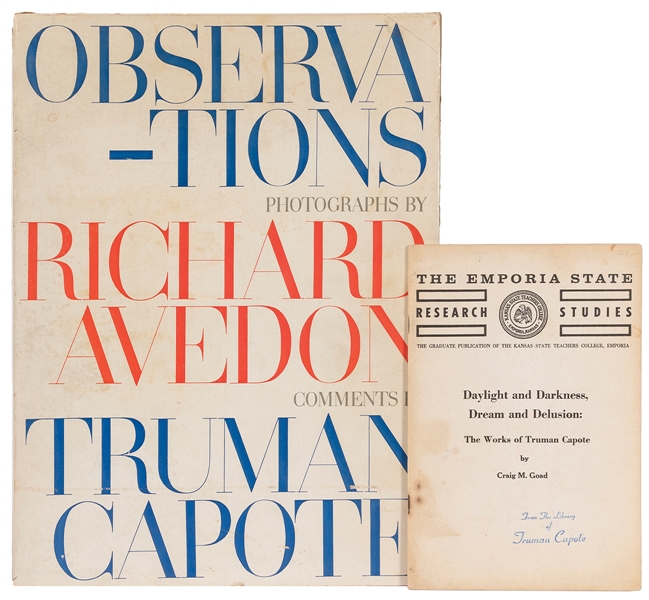
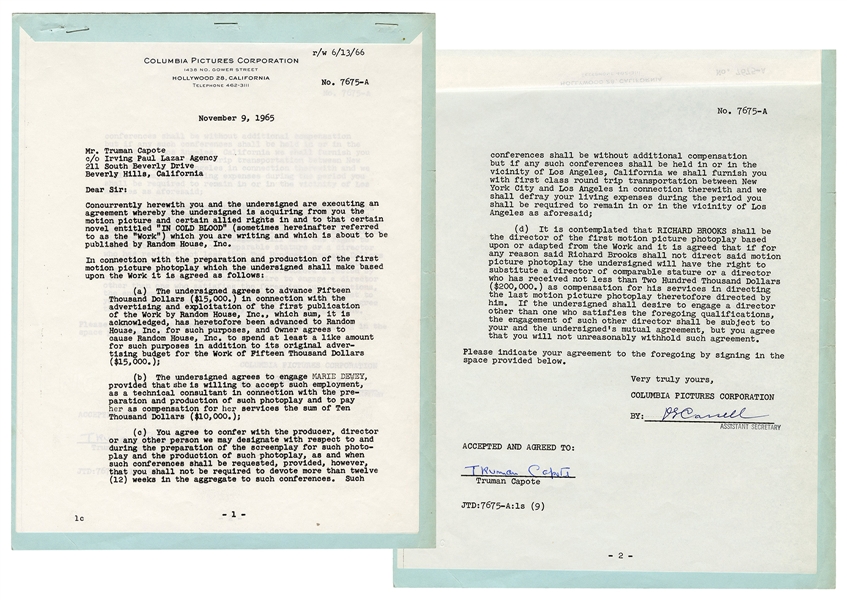

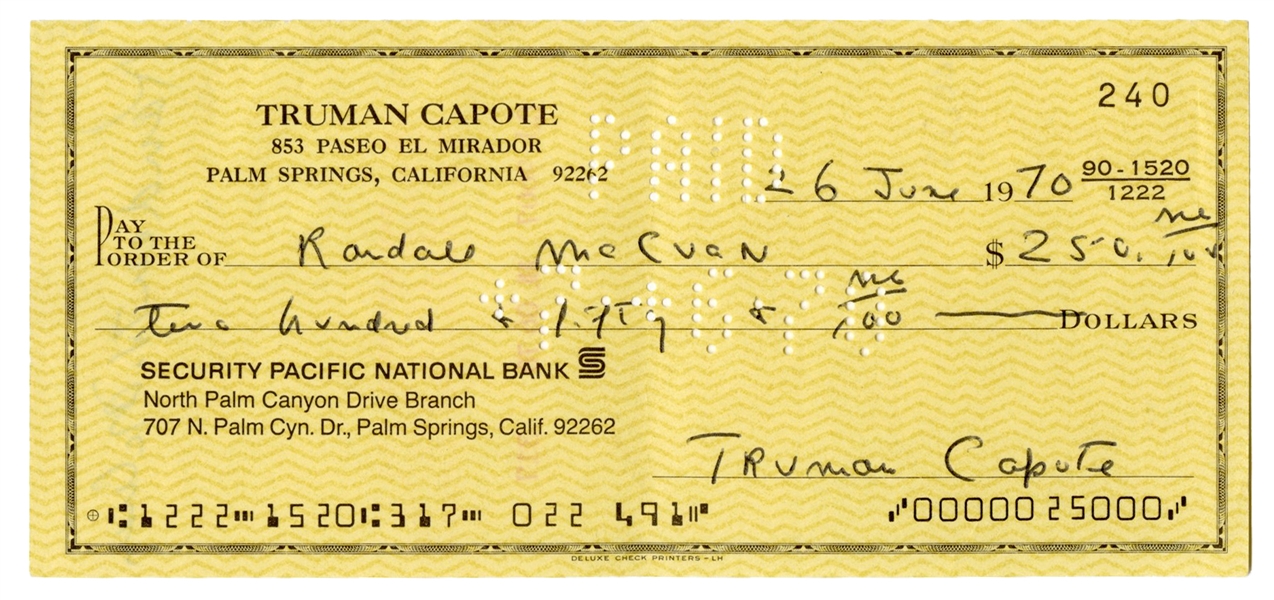





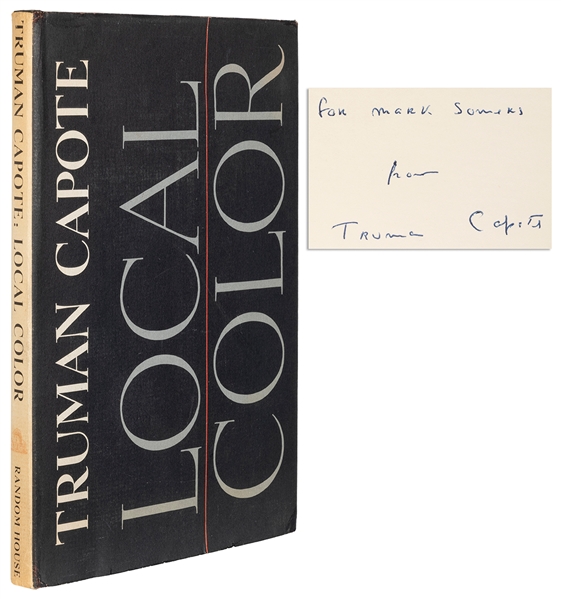
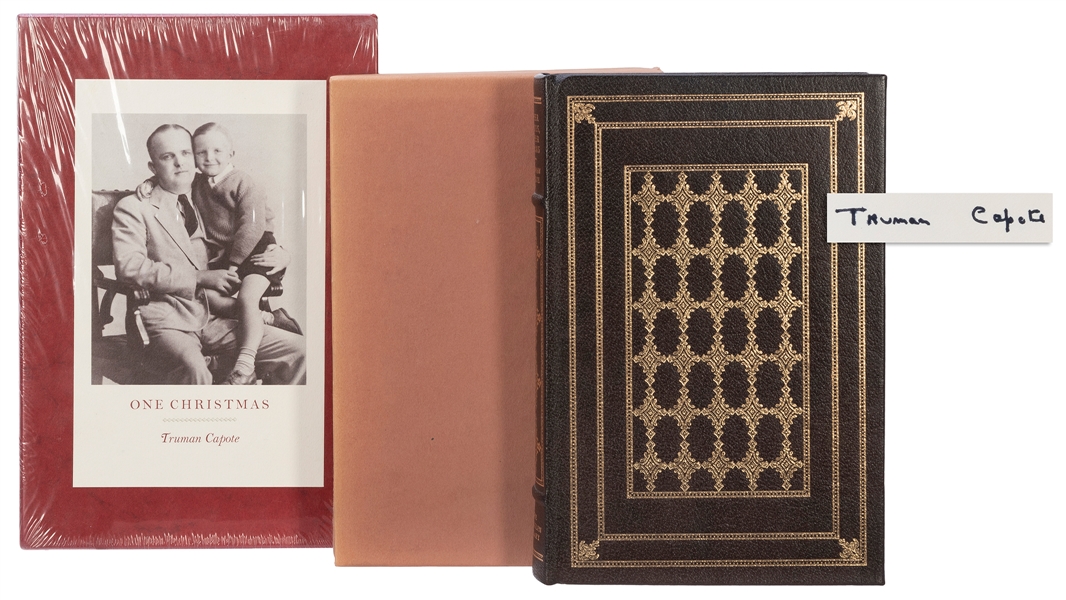


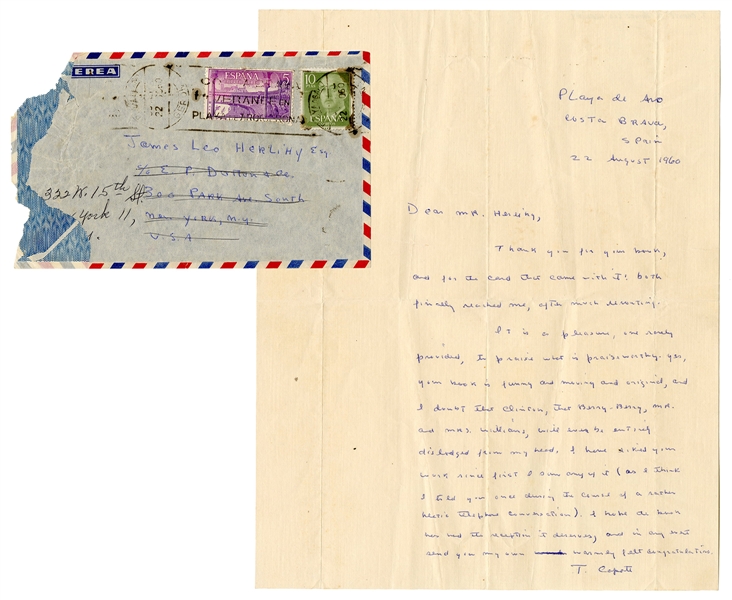
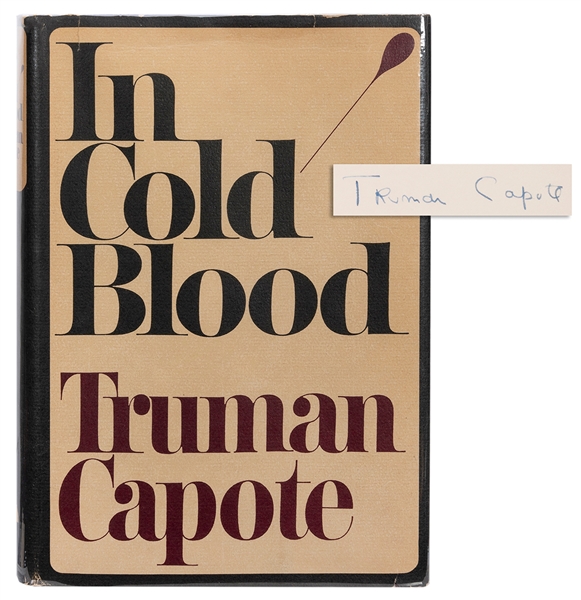
Testen Sie LotSearch und seine Premium-Features 7 Tage - ohne Kosten!
Lassen Sie sich automatisch über neue Objekte in kommenden Auktionen benachrichtigen.
Suchauftrag anlegen